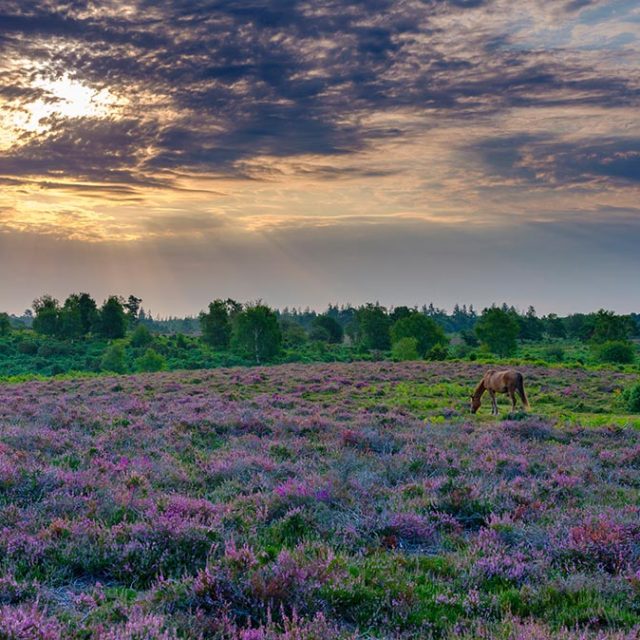Land Business Update | Week Commencing 10th July 2023
Farming
Trading water abstraction rights in England
The Environment Agency (EA) has published a guidance note on how to enter into an agreement with an existing licence holder so that part or all of their water abstraction rights can temporarily or permanently be given to another party. This can be a useful option for farmers struggling to secure an abstraction licence in locations lacking irrigation and suffering from a lack of rainfall. If you would like some help with this, please contact a member of our farming team.
Welsh Agriculture Bill approved
In Wales, the Agriculture Bill now only awaits Royal Assent, enabling the Sustainable Farming Scheme to start in 2025 and fully replace Basic Payment by the end of the decade.
Farming Innovation Investor Partnership competition
Building up on the Farming Innovation programme, Innovate UK and Defra will be launching the Farming Innovation Investor Partnership competition on Monday 24th July. It will aim to invest up to £5m in innovation projects that could benefit farmers, growers or foresters in England, focusing on boosting productivity, improving farm sustainability and resilience and helping the agricultural sector in achieving its net zero targets by 2050. The application window has a tight turnaround as will be closing on 30th August 2023, so if interested in applying, be ready to draft your application as soon as the competition opens.
Asulox for bracken control – a split decision for 2023
The use of Asulox, the main herbicide for controlling bracken, has been approved in England but not in Scotland or Wales; Northern Ireland has not yet decided. The Chemicals Regulation Division of the Health and Safety Executive recommended that its use is refused but the Bracken Control Group states that it is essential to stop bracken cover expanding. It argues that national decisions should take into account problems associated with not controlling bracken, such as it being a source of carcinogens, sheep ticks and tick-borne diseases, and the wider impact on bracken cover on biodiversity.
Environment
Wales’ first Biodiversity Deep Dive update published
The Welsh Government has published its first biannual update in response to the ‘Biodiversity Deep Dive,’ which it set up to recommend collective actions that the country can take to support nature’s recovery and meet its 30 by 30 target. S&P comment: we really like the simplicity of presentation of the update; it sets out key actions needed and next steps, which makes the whole programme feel very transparent and open.
Expression of Interests open for the Species Survival Fund in England
Individuals and groups in England with projects that aim to boost the creation and restoration of natural habitats at scale can now submit their Expression of Interests (EOIs) to have the opportunity to be granted funding under the Species Survival Fund. Administrated by the National Lottery Heritage Fund, the £25m fund will support projects of maximum two years’ duration with grants between £250,000 and £3m. EOIs must be submitted by 24th July 2023.
Local Nature Recovery Strategies
The government has finally published how these Strategies will operate. They are a new statutory requirement and will be led by 48 ‘responsible authorities’ across the country, which are mainly county councils and unitary authorities. The Strategies will set out targets for the recovery of nature in each area, using habitat plans and statements of biodiversity priorities i.e., they are a guide. The actions needed to achieve the targets will be funded and enabled by the national government, including through Environmental Land Management schemes and Biodiversity Net Gain. The strategies will be prepared by a wide range of people and organisations, including land managers, so the responsible bodies need to sharpen their pencils quickly as they have been given £14m to produce the strategies by March 2025 at the latest.
Environment minister resigns and accuses PM of “effectively abandoning” his climate promises
Zac Goldsmith, who has held environment roles in a number of Conservative governments, resigned after a damning report by the Climate Change Committee stated that Britain was no longer a global environmental leader.
UK government taken to court again over net zero strategy
Three legal challenges to the government’s ‘Green Day plan’ have been lodged by environmental organisations, including Friends of the Earth and ClientEarth, which say that the plan to reduce emissions is not fit for purpose as it does not provide detail on the risks of its different policies being delivered. The government was forced to publish the revised net zero strategy after successful legal challenges by the organisations in July 2022.
Property and rural economy
Almost 30% of private rented sectors homes in rural areas do not meet the Decent Homes Standards
This is a higher proportion than in towns and cities, which have 21% missing the standards, according to the government. Houses with poor energy efficiency were much more likely to be ‘non-decent’, with 96% of F and G rated properties deemed non-decent. The Decent Homes Standards assess houses on a range of measures including:
- Not having a Category 1 hazard (which could cause death or permanent injury) under the Housing Health and Safety Rating System.
- Providing a reasonable degree of thermal comfort.
- Being in a reasonable state of repair.
- Having reasonably modern facilities and services.
Please contact Sarah Roberts in our residential management team if you would like to discuss housing standards and lettings.
Separately, funding under the Government’s Affordable Homes Programme can now be used to fund the replacement of homes that are not fit to purpose. Previously, the funding was only for new affordable homes.
Proposed changes to deer management in Scotland
Following the increasing numbers of deer across Scotland, NatureScot have announced the following changes to the Deer (Scotland) Act that will come into effect in Autumn 2023:
- Removal of closed seasons for all male deer from 21st October 2023
- Approval for the use of thermal imaging and night vision scopes for taking deer at night under license from November 2023
- Amend the minimum bullet weight to make non-lead ammunition more accessible
While deer continue to contribute to the rural economy and are integral to biodiversity, the announcement will hopefully mean that, where and if required, deer can be controlled in a more effective way. This will help protect Scotland’s natural assets by minimising browsing damage to trees and sensitive vegetation. As reported in a recently published paper by Scottish Environment LINK, the impacts of deer are one of the main barriers to Scotland’s rainforest’s restoration. If you have any queries regarding these changes, licensing or deer management, get in touch with Simon Hart, our Head of Forestry Scotland.






